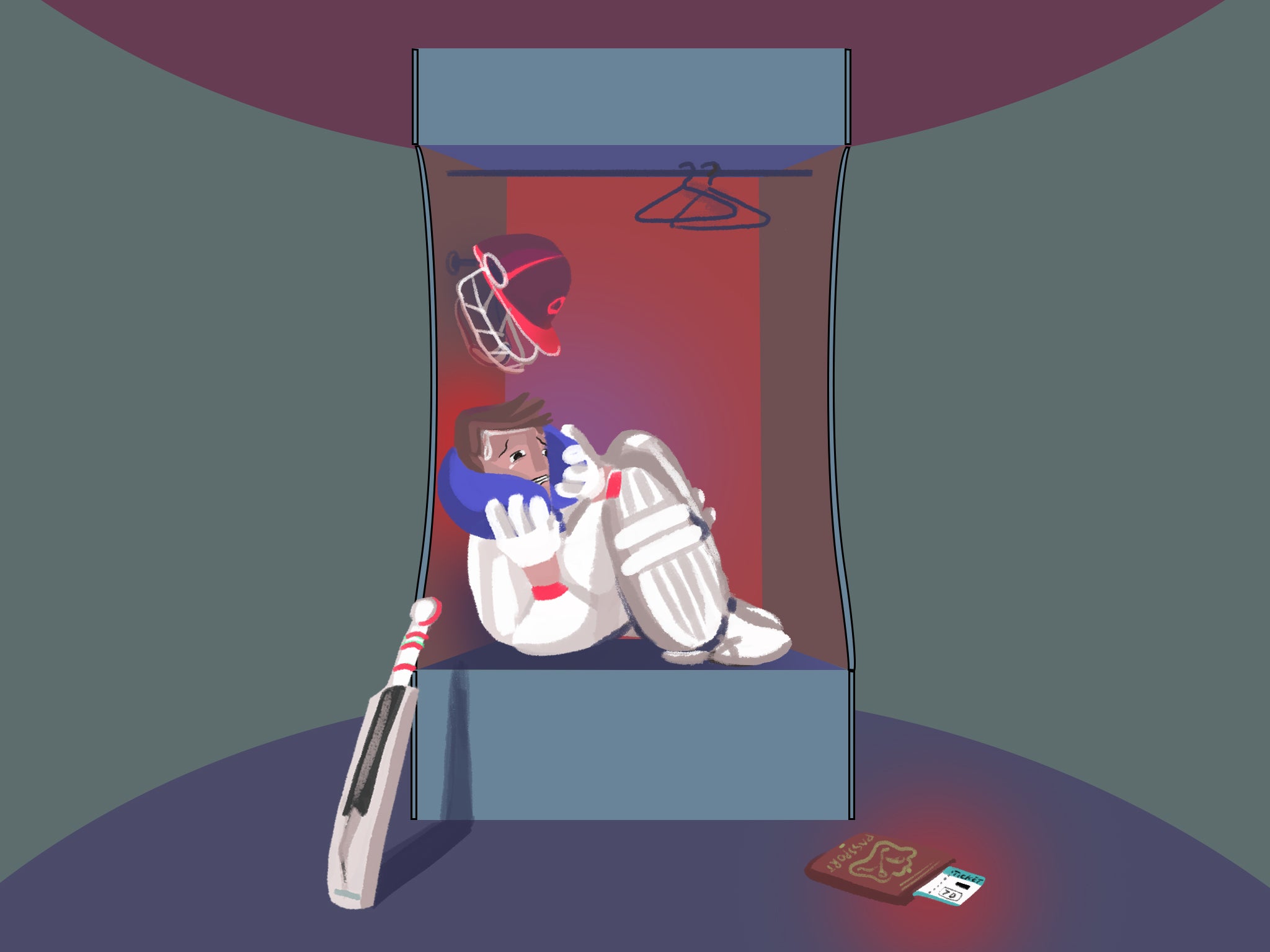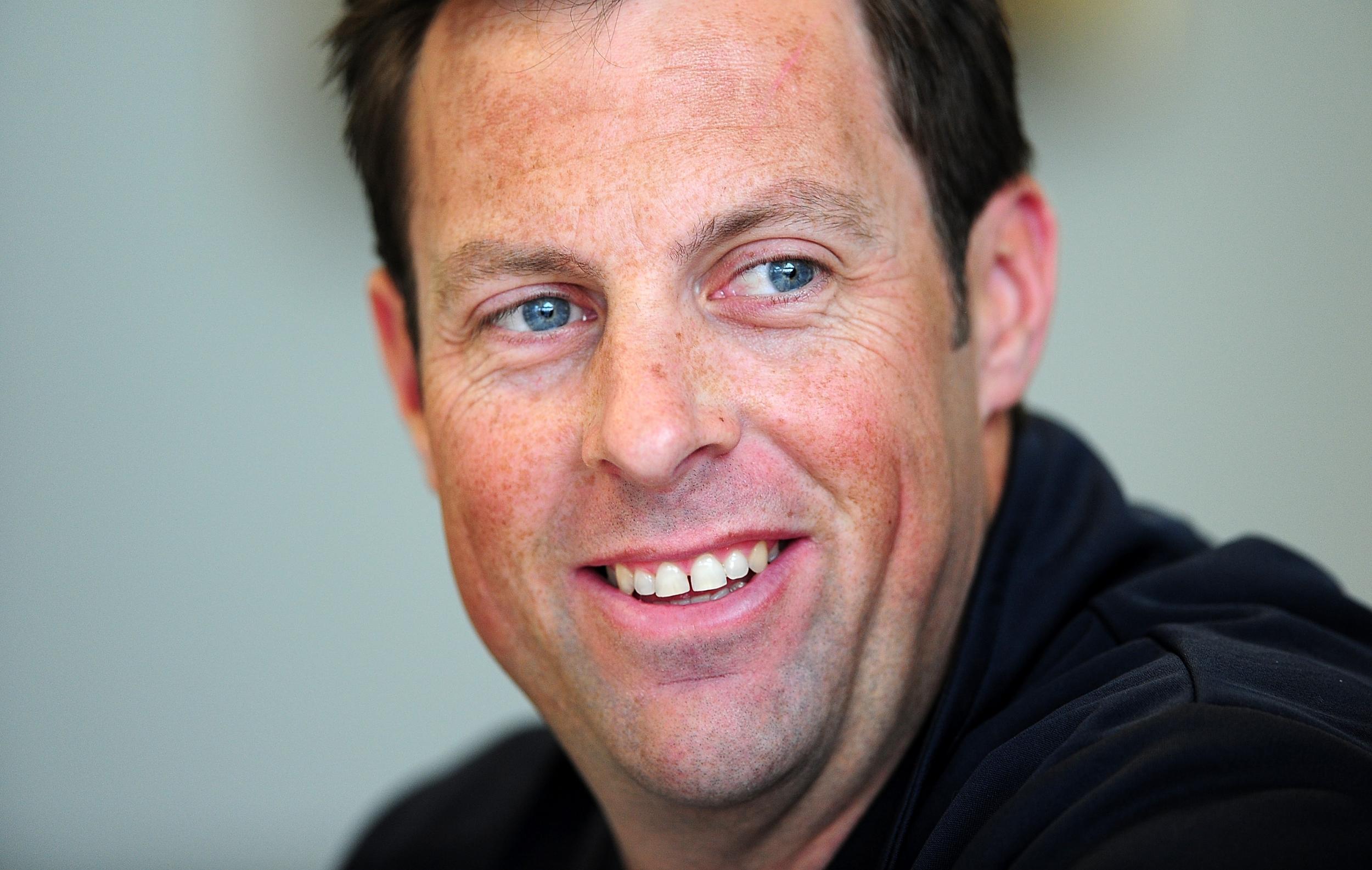‘I was a pressure cooker building and building’: The realities of life away from the spotlight
From the draining demands that come with constant touring to the dangers of gambling that can arise in an athlete’s downtime, the nature of the modern sporting lifestyle takes its toll in numerous ways, writes Samuel Lovett


Marcus Trescothick calls it “the shiver”. That jolting sensation of dread which runs down his spine when confronted with the oncoming storm of a breakdown. There’s no single trigger to it. An unexpected phone call. News of a local car crash. The prospect of a week away from his family and children. “It’s a horrible feeling and scares the shit out of me,” he says.
For as long as he can remember – since he was roughly 10 and struggled with acute homesickness – he’s had to live with this. On some days the ‘shiver’ passes quickly, enabling him to get on with his life. On other days, it can manifest into something far more sinister as he slowly slips beneath the dark waves of his own mind. It’s in these moments, crippled by anxiety to the point of paralysis, Trescothick goes into shutdown.
This was what happened during England’s tour of India in 2006. Stripped of the “safety blanket” that comes with life at home, thrust into an alien environment and separated from his family, “the beast that lives inside” – as he describes it – became too much to bear.
“I was just in pieces,” he tells The Independent. “I was shit-scared of what was going on. I didn’t understand what was happening as it was far greater [than usual]. It was lasting longer and it wasn’t going away.
“In fact it was getting worse by the end because I wasn’t sleeping or eating properly, it’s hot outside and you can just imagine trying to train. I was getting more and more depleted by the day because resources were low … I was massively in a place where I was uncomfortable and I knew then, once I’d played the [final warm-up] game and came off in pieces, I needed to disappear – I had to get out. I couldn’t survive anymore as it was just too big and painful.”
Trescothick immediately left for home. The flight back brought relief – “in that little cocoon you lock yourself away, it was brilliant” – but the anxiety quickly returned once he was confronted with a rampant media pack hungry for answers. Reporters and photographers followed his every step once he was back in Taunton, even turning up at his wife’s parent’s house as he sought refuge. “I was just freaking out by that point,” he says.
For the next two years – against this backdrop of media scrutiny – Trescothick battled, ultimately in vain, to maintain his international career. He pulled out of tours of Sri Lanka, Australia and South Africa as his illness continued to get the better of him. “I was a pressure cooker building and building, getting worse and worse,” he says.
The defining moment came in a Dixons at Heathrow Airport ahead of Somerset’s tour of UAE in March 2008. There, curled up in a corner, sobbing uncontrollably, unable to board the flight, Trescothick realised “enough was enough.” He couldn’t continue with this lifestyle anymore and subsequently announced he would be retiring from international cricket.
“I cracked at that point,” he says. “It was too big a problem. I’d overcome many times going away and feeling crap, and coping with it, but this problem escalated now tenfold to put me in a place that I couldn’t cope with. It was just easier to say ‘I’ll have to move away’.”
In Trescothick’s case, the touring life proved too much, the sense of dislocation and alienation too great. This was a mental pressure that he was unwilling to tolerate. But in announcing his retirement, and later explaining why, the Somerset batman cracked that facade of invincibility which cloaks so many of today’s sports starts, revealing a more humane, vulnerable surface beneath. It was a seminal moment for cricket, and helped generate an understanding among fans that they, just like us, are susceptible to the ebbs and flow of mental health.
But this is just one example of the way in which the sporting lifestyle – be it the fame, the endless touring or even the monotonous demands of training – can push today’s athletes over the edge. These ‘triggers’ – specific to each and every sportsperson – can take multiple forms and vary in severity.
In the Olympic and Paralympic movement, many struggle to readjust after reaching the pinnacle of their sport, having worked towards that single moment for four years. Indeed, after the euphoria of victory has passed, the public’s interest diminished and the spotlight subsequently dimmed, it’s back to brutal basics and the demanding realities of a profession which, as Michael Phelps admitted in 2017, can take its toll.
“You’re at the highest level of sport you can possibly get,” he said. “Then you’ll want to do something new, something crazy. That high to low can put you in a dark spot.”
The relentlessness and isolation that comes with these athletes’ training programmes can further heighten any turmoil they may be experiencing once the afterglow of success has faded.
“People only see on the TV that one minute and 17 seconds, but actually it’s 365 days a year where you have to give up sleep, your social life sometimes, you know what you’re doing each week,” Ellie Simmonds tells The Independent. “We’re in the pool nine times a week, 16-18 hrs plus, the gym on top of that. For me, I get up at 4.37am, on the tube at 5.15am, in the pool 6-8am. Then I’ve got to be back in the pool in the afternoon for 2 hrs.”
Simmonds admits she’s privileged to do what she does but insists it can be “hard mentally.” “Sometimes you feel you just want to give up,” she says.

Dr James Bell, head of UK sport, says the repetitive nature of training for the Olympics and Paralympics is a “unique stresser” that isn’t always present in other sports. “They do a very, very repetitive skill over and over again, often in isolation too,” he tells The Independent.
“If you wanted to create a mental health problem then you get people to be isolated, get them to do the same thing, you get them to have no variety – that is a particularly unique stresser in our world. But quite frankly, if you want to win a medal you have to do it. There are no short cuts.”
The monotony of it – and the battle against the self – can create a very different mental environment to the likes of football or rugby union, where variety and comradeship means the rigours of daily training might not seem as mentally draining.
Still, there are so many hours of the week that can be committed to training and competing. Filling the time in between presents its own challenges. The lure of gambling, in particular, is beginning to raise red flags across the sports industry. Multiple player associations have expressed their concern to The Independent over the rising accessibility of gambling and the psychological impact it’s having on members.
According to research conducted by EPIC, an independent gambling harm-minimisation consultancy, sportspeople are five times more likely to be a ‘problem gambler’ than the general population.
Scott Davies, a former Reading player who lost £200,000 to his addiction, says the boredom and loneliness that came with being on loan initially pushed him towards gambling. Finding himself locked away in random hotel rooms, with an abundance of time on his hands and little to do, Scott began looking to recreate the “buzz” of the playing field.
“The loneliness, living in hotels in Yeovil as an example, led me to gambling,” Davies tells The Independent. “Just boredom. You sit there and think what else is there to do?” It wasn’t long before he was hooked and dividing his time between football and the bookies.
“I scored 25 goals in my first 50/60 games. That buzz was incredible. The betting was exactly the same. I remember being in the bookies and my heart beat was going up and down, buzzing, thinking ‘You know what, this is class.’ It’s the best feeling. I had that feeling more often than when playing.

“At one point in my career, winning three points just became irrelevant to me. It wasn’t satisfying me.”
Davies would later return to Reading, where he ended up lying to Brendan Rodgers over his unexplained absences before being released and moving on to Crawley. Other transfers followed but it all became irrelevant as his addiction took hold, consuming all aspects of his life as he began amassing debt from friends, sleeping in his car and even self-harming. Davies’s breaking point came in June 2015 when, overcome with suicidal thoughts, he approached his family with his struggles. After undertaking a 26-day rehab course with Sporting Chance, Scott hasn’t placed a single bet since. “I believe that it saved my life,” he says.
Paul Buck, chief executive of EPIC, believes that for all the progress made in mental health in sport, the dangers posed by gambling have yet to be tackled. “I think there’s still a massive stigma around gambling addiction because it’s seen as a weakness,” he says. “People don’t understand it. If I admit I’m a gambler it’s like I’m perceived as weak so may not be selected by the coach.
“It’s the most illogical addiction going. You’re spending so much money, spending so much time doing it, so why do you carry on doing it? For those who have had a problem it’s got to the point where it’s the only thing that makes sense to you. Everything else in your life becomes a pain in your life. It’s very illogical, that’s why people don’t get it and talk about it.”
As with so many other aspects of the sporting life, understanding these experiences can be difficult for us as fans. Why, as a Premier League footballer living the dreams of millions, would you throw away your career for gambling? Why, as a world-class England cricketer, would touring the globe precipitate a crisis in mental health? Why, as an elite Olympian or Paralympian, would the day-to-day demands of training warrant a swift and sudden slide into depression?
The simple answer is that, like the rest of us, they’re helplessly human. The reality is that away from the adulation, intoxicating victories and thrill of the playing field, the life of an elite athlete can paint a very different – and familiar – picture. Realising this can make all the difference in the way we perceive athletes, the way we treat them and the way we approach the conversation around mental health in sport.
Join our commenting forum
Join thought-provoking conversations, follow other Independent readers and see their replies
Comments
Bookmark popover
Removed from bookmarks